Discover Science Friday
Science Friday

Science Friday
Author: Science Friday and WNYC Studios
Subscribed: 154,518Played: 4,159,091Subscribe
Share
© Science Friday
Description
Covering the outer reaches of space to the tiniest microbes in our bodies, Science Friday is the source for entertaining and educational stories about science, technology, and other cool stuff.
1180 Episodes
Reverse
African grey parrots are internet stars. It’s easy to see why—the charismatic birds sing, tell jokes, and sling profanities. But how do the endangered birds get from African forests to your feed? Wildlife crime reporter Rene Ebersole joins Host Flora Lichtman to describe her investigation into the global parrot trade, and the black market for wild African greys that is threatening their existence.Guest: Rene Ebersole is Editor In Chief at Wildlife Investigative Reporters and Editors (WIRE).Transcripts for each episode are available within 1-3 days at sciencefriday.com.
Subscribe to this podcast. Plus, to stay updated on all things science, sign up for Science Friday's newsletters.
After years of getting your emails and phone calls, we know that SciFri listeners are in the 99th percentile when it comes to nerdy knowledge. We’re putting your fact retention skills to the test with the first ever Super Food Science Excellence Trivia Blowout (SFSETBO).Host Flora Lichtman teams up with trivia kingpin Mangesh Hattikudur, co-host of the podcast “Part-Time Genius,” to quiz one lucky listener on her food science knowledge.Guest: Mangesh Hattikudur is the co-host of “Part-Time Genius” and co-founder of Kaleidoscope.Transcripts for each episode are available within 1-3 days at sciencefriday.com.
Subscribe to this podcast. Plus, to stay updated on all things science, sign up for Science Friday's newsletters.
Some animals have a very different relationship to aging than we do: They don’t get cancer, they never go through menopause, and they live absurdly long lives. For instance, one bat species can live for more than 40 years, which may not sound like very long but that’s about nine times longer than expected based on its size. For comparison, if we aged on that scale, we’d live for hundreds of years. These bats aren’t the only animal super-agers—there’s a whole menagerie of them.So what’s their secret? And can we learn anything from them that might help us live longer, healthier lives? Host Flora Lichtman talks with longevity researchers Vera Gorbunova and Juan Manuel Vazquez about what animals are teaching us.Guests:Dr. Vera Gorbunova is a biologist and professor at the University of Rochester, and a co-director of the Rochester Aging Research Center.Dr. Juan Manuel Vazquez is a biologist and assistant professor at Pennsylvania State University studying the evolution of aging.Transcripts for each episode are available within 1-3 days at sciencefriday.com.
Subscribe to this podcast. Plus, to stay updated on all things science, sign up for Science Friday's newsletters.
Proteins are crucial for life. They're made of amino acids that “fold” into millions of different shapes. And depending on their structure, they do radically different things in our cells. For a long time, predicting those shapes for research was considered a grand biological challenge.But in 2020, Google’s AI lab DeepMind released Alphafold, a tool that was able to accurately predict many of the structures necessary for understanding biological mechanisms in a matter of minutes. In 2024, the Alphafold team was awarded a Nobel Prize in chemistry for the advance.Five years later after its release, Host Ira Flatow checks in on the state of that tech and how it’s being used in health research with John Jumper, one of the lead scientists responsible for developing Alphafold.Guest: John Jumper, scientist at Google Deepmind and co-recipient of the 2024 Nobel Prize in chemistry.Transcripts for each episode are available within 1-3 days at sciencefriday.com.
Subscribe to this podcast. Plus, to stay updated on all things science, sign up for Science Friday's newsletters.
If you’ve heard the hammering of a woodpecker in the woods, you might have wondered how the birds can be so forceful. What does it take to whack your head against a tree repeatedly, hard enough to drill a hole? A team of researchers wondered that too and set out to investigate, by putting tiny muscle monitors on eight downy woodpeckers and recording them with high-speed video as they pecked away in the lab.Integrative organismal biologist Nick Antonson, co-author of a report on the work, joins Host Flora Lichtmen to peck away at the mystery.Plus, you can take two ant eggs with the exact same genes, and one can grow up to be a queen, the other a worker. Neuroscientist and evolutionary biologist Daniel Kronauer joins Flora to share recent research into how an ant becomes a queen.Guests: Dr. Nick Antonson is an NSF postdoctoral research fellow in the department of ecology, evolution, and organismal biology at Brown University.Dr. Daniel Kronauer is the Stanley S. and Sydney R. Shuman Professor in the Laboratory of Social Evolution and Behavior at The Rockefeller University in New York.Transcripts for each episode are available within 1-3 days at sciencefriday.com.
Subscribe to this podcast. Plus, to stay updated on all things science, sign up for Science Friday's newsletters.
Our memories make us who we are—just ask Barbra Streisand. But despite the lyrics in many popular songs, memories aren’t frozen in time. When we call them up, the details shift and change. And neuroscience research shows that we might be able to take that a step further—to manipulate our memories and even implant false ones.Neuroscientist Steve Ramirez joins Host Ira Flatow to explain how memory manipulation could revolutionize the way we treat brain disorders. They also discuss Ramirez’s book, How to Change a Memory: One Neuroscientist's Quest to Alter the Past, and how the sudden death of his friend and scientific collaborator made him rethink the role of memory.Guest: Dr. Steve Ramirez is an associate professor of psychology and brain sciences at Boston University and the author of How to Change a Memory.Transcripts for each episode are available within 1-3 days at sciencefriday.com.
Subscribe to this podcast. Plus, to stay updated on all things science, sign up for Science Friday's newsletters.
Bearded vultures build giant, elaborate nests that are passed down from generation to generation. And according to a new study, some of these scavengers have collected bits and bobs of human history over the course of centuries. Scientists picked apart 12 vulture nests preserved in Spain and discovered a museum collection’s worth of objects, including a woven sandal that could be more than 700 years old. Host Flora Lichtman talks with study author Ana Belen Marín-Arroyo, an archaeologist who studies ancient humans, about how the nests are giving us a glimpse into vulture culture as well as the lives of the people they lived beside.Guest: Dr. Ana Belen Marín-Arroyo is an archeologist and professor of prehistory at the University of Cantabria in Spain.Transcripts for each episode are available within 1-3 days at sciencefriday.com.
Subscribe to this podcast. Plus, to stay updated on all things science, sign up for Science Friday's newsletters.
The band Phish has toured for over 40 years. One of the draws of their legendary live shows—which can go on for 8 hours—is finding moments of “flow,” when the band members lock into an improvised jam, finding new musical ideas in real time.Phish fans live for these transcendent moments, but so do the musicians—to the point that Mike Gordon, the band’s bass player, is funding scientific research to better understand flow state.Host Flora Lichtman sits down with Mike and his research collaborator, neuroscientist Greg Appelbaum, to unpack their research so far and how it’s helping to inform other neuroscience.Guests:Mike Gordon is bassist and co-founder of the rock band Phish. Dr. Greg Appelbaum is a professor in the department of psychiatry at the University of California, San Diego.Transcripts for each episode are available within 1-3 days at sciencefriday.com.
Subscribe to this podcast. Plus, to stay updated on all things science, sign up for Science Friday's newsletters.
Around 25 years ago, Ardem Patapoutian set out to investigate the fundamental biology behind our sense of touch. Through a long process of gene elimination, he identified a class of sensors in the cell membrane that turn physical pressure into an electrical signal. He changed the game in the field of sensation and perception, and in 2021 shared the Nobel Prize in Physiology or Medicine for his work. He joins Host Flora Lichtman to talk about his research, the odd jobs he worked along the way, and how he found a sense of belonging in science.Guest: Dr. Ardem Patapoutian is a professor and the Presidential Endowed Chair in Neurobiology at the Scripps Research Institute in La Jolla, California. Transcripts for each episode are available within 1-3 days at sciencefriday.com.
Subscribe to this podcast. Plus, to stay updated on all things science, sign up for Science Friday's newsletters.
Over the last five years, billions of people have received at least one dose of a COVID-19 mRNA vaccine. New research has found an unanticipated result of these vaccines: Cancer treatments are more effective for some vaccinated patients, and many live longer than their unvaccinated counterparts. This news comes at a time where the federal government is slashing funding for mRNA research. Host Ira Flatow speaks to lead study author Adam Grippin and vaccine expert Eric Topol.Guests: Dr. Adam Grippin is a radiation oncologist at the MC Anderson Cancer Center in Houston, Texas. Dr. Eric Topol is a cardiologist and genomics professor at the Scripps Research Institute in La Jolla, California.Transcripts for each episode are available within 1-3 days at sciencefriday.com.
Subscribe to this podcast. Plus, to stay updated on all things science, sign up for Science Friday's newsletters.
One of the biggest debates in the dinosaur world is what was happening right before they went extinct. Were they already declining, or would they have thrived if not for the asteroid? Two recent studies shed some light on this question: one that analyzes a trove of fossils from New Mexico and suggests there was more diversity in the Americas than previously thought, and another that reanalyzes a long-debated juvenile T. rex fossil and finds it’s likely a separate, smaller species.Host Ira Flatow is joined by authors on those separate studies, paleontologists Steve Brusatte and Lindsay Zanno.Guests: Dr. Lindsay Zanno is division head of paleontology at the North Carolina Museum of Natural Sciences in Raleigh, NC.Dr. Steve Brusatte is a paleontologist at the University of Edinburgh in Scotland.Transcripts for each episode are available within 1-3 days at sciencefriday.com.
Subscribe to this podcast. Plus, to stay updated on all things science, sign up for Science Friday's newsletters.
As Black Friday approaches, you’re probably being inundated with ads for bigger, better televisions. But just how good is good enough? Are there limits to what our eyes can even make out?Visual perception researcher Maliha Ashraf joins Host Flora Lichtman to describe her new study on display resolution—including a display calculator she and her colleagues developed to help you determine the optimal display characteristics for a given room. And retinal neuroscientist Bryan Jones joins the conversation to delve into the workings of human vision.Guests:Dr. Maliha Ashraf is a postdoctoral researcher at the University of Cambridge in the UK.Dr. Bryan W. Jones is a professor of ophthalmology at the University of Pittsburgh.Transcripts for each episode are available within 1-3 days at sciencefriday.com.
Subscribe to this podcast. Plus, to stay updated on all things science, sign up for Science Friday's newsletters.
Decades ago, non-native carp were brought onto fish farms on the Mississippi River to control algae and parasites. They escaped, thrived, and eventually flooded the Illinois River, outcompeting native species and wreaking havoc. If the carp find their way into the Great Lakes, they could do major damage to those vital ecosystems.There’s a proposed project to stop the fish—but it’s expensive, and not everyone agrees it’s the best solution. Host Flora Lichtman speaks with WBEZ and Grist reporter Juanpablo Ramirez-Franco and carp expert Cory Suski.Guests: Juanpablo Ramirez-Franco is an environmental reporter at WBEZ and Grist. Dr. Cory Suski is a professor of aquatic resources at the University of Illinois.Transcripts for each episode are available within 1-3 days at sciencefriday.com.
Subscribe to this podcast. Plus, to stay updated on all things science, sign up for Science Friday's newsletters.
Axolotls are one of the most charismatic and beloved amphibians out there. But did you know that there’s only one place in the whole world where you can find them in the wild? It’s Lake Xochimilco in Mexico City.There, scientists are scrambling to save them from extinction by creating refuges, using environmental DNA to track them down, and tag-teaming with the farmers who work on the lake. Luis Zambrano, one of the world’s leading axolotl experts, and Alejandro Maeda-Obregón, a molecular biologist, talk with Host Flora Lichtman about their work to protect these beloved amphibians.Guests:
Dr. Luis Zambrano is a leading expert on axolotls and an ecologist at the National Autonomous University of Mexico.Dr. Alejandro Maeda-Obregón is a molecular ecologist at University College London who studies rare and endangered species.Transcripts for each episode are available within 1-3 days at sciencefriday.com.
Subscribe to this podcast. Plus, to stay updated on all things science, sign up for Science Friday's newsletters.
Endometriosis is a painful disease that occurs when endometrium-like tissue grows outside of the uterus. It’s extremely common—if you have a uterus, you have a 1 in 10 chance of getting it. Yet, it takes seven years on average to receive a formal diagnosis. What does the latest science tell us about the biology of the condition and how to treat it? And why do so many people have such a difficult time getting diagnosed? Host Flora Lichtman is joined by endometriosis researcher and patient Linda Griffith to answer those questions and more. Guest: Dr. Linda Griffith is a biological engineer and Scientific Director of The MIT Center for Gynepathology Research.Transcripts for each episode are available within 1-3 days at sciencefriday.com.
Subscribe to this podcast. Plus, to stay updated on all things science, sign up for Science Friday's newsletters.
We've figured out how to harness renewable energy from many natural systems, like solar, wind, and geothermal power. But what about the ocean’s waves? It might seem like converting wave power into electricity on a large scale would’ve been figured out by now, but the tech is actually just getting its sea legs. Why has it been so hard to develop? And just how promising is it?Host Flora Lichtman talks with Oregon Public Broadcasting reporter Jes Burns, who reported on Oregon’s massive wave energy test site; and then she checks in with Deborah Greaves, an offshore renewable energy researcher, for a look at what’s happening in the rest of the world.Guests: Jes Burns is a science and environment reporter and host of "All Science. No Fiction." at Oregon Public Broadcasting.Dr. Deborah Greaves is a professor of ocean engineering at the University of Plymouth in England.Transcripts for each episode are available within 1-3 days at sciencefriday.com.
Subscribe to this podcast. Plus, to stay updated on all things science, sign up for Science Friday's newsletters.
For Halloween, we bring you an ode to three quintessentially creepy creatures: bats, arachnids, and snakes. First, bat researcher Elena Tena joins Host Flora Lichtman to describe tracking the greater noctule bat in flight and learning that it can feed on migratory birds. Then, arachnologist Paula Cushing describes the camel spider, which is neither a camel nor a spider. And herpetologist Sara Ruane highlights one of her favorite snakes, the tiger keelback, which is both venomous and poisonous. Plus, what makes a lake spooky? A pond possessed? Flora talks with Geo Rutherford, creator of the Spooky Lake Month series on TikTok and Instagram, to learn about some of the spookiest, most mysterious lakes on the planet. Guests:Dr. Elena Tena is the national coordinator for the Spanish Bat Atlas project.Dr. Paula Cushing is senior curator of invertebrate zoology at the Denver Museum of Nature and Science in Denver, Colorado. Dr. Sara Ruane is curator of herpetology at the Field Museum in Chicago, Illinois. Geo Rutherford is the author of Spooky Lakes: 25 Strange and Mysterious Lakes That Dot Our Planet and the creator of Spooky Lake content TiKTok and Instagram. You can find her @geodesaurus. Transcripts for each episode are available within 1-3 days at sciencefriday.com.
Subscribe to this podcast. Plus, to stay updated on all things science, sign up for Science Friday's newsletters.
There’s an established playbook for getting one’s affairs in order before death—create a will, name legal guardians, and so on. But there’s also a newer consideration: what will happen to our digital presences, like social media accounts, files, photos, videos, and more. So how do we manage them, and make sure we’re not turned into AI chatbots without permission? (It does happen.) Information scientist Jed Brubaker studies digital afterlives, and joins Host Flora Lichtman to discuss how we can manage our digital legacies. Guest: Jed Brubaker is an information scientist and head of the Digital Legacy Clinic at the University of Colorado, Boulder.Transcripts for each episode are available within 1-3 days at sciencefriday.com.
Subscribe to this podcast. Plus, to stay updated on all things science, sign up for Science Friday's newsletters.
At first blush, the plots of many horror movies don’t seem particularly appealing. Take “The Shining”: A murderous psychopath tries to kill his family in a haunted, secluded hotel. But horror movies have had devoted fans for as long as they’ve been around, and lately, scary movies and television shows like “Sinners” or “The Walking Dead” have made a big splash. Why? What draws us to horror? And why are some people more thrill-seeking or morbidly curious than others? Host Flora Lichtman talks with two psychologists on opposite poles of horror fandom to flesh out some of the answers: horrorphile and behavioral scientist Coltan Scriver, and psychology professor Ken Carter, who’s horrified by horror. Guests: Dr. Ken Carter is a psychology professor at Emory University and the author of Buzz!: Inside the Minds of Thrill-Seekers, Daredevils, and Adrenaline Junkies. Dr. Coltan Scrivner is a behavioral scientist at Arizona State University and the author of Morbidly Curious: A Scientist Explains Why We Can’t Look Away. Transcripts for each episode are available within 1-3 days at sciencefriday.com.
Subscribe to this podcast. Plus, to stay updated on all things science, sign up for Science Friday's newsletters.
For decades, peanut allergies were on the rise in the US. But a study released on October 20 found that peanut allergies in babies and young children are now decreasing. This drop correlates with a change in guidance from the National Institute of Allergy and Infectious Diseases. In 2017, the agency started recommending exposing children to peanuts “early and often.” Since that recommendation, the prevalence of peanut allergies has dropped significantly.Sharon Chinthrajah, a physician specializing in allergies and immunology, churns through the findings with Host Flora Lichtman. Guest: Dr. Sharon Chinthrajah is a physician specializing in allergy and immunology at the Sean N. Parker Center at Stanford University.Transcripts for each episode are available within 1-3 days at sciencefriday.com.
Subscribe to this podcast. Plus, to stay updated on all things science, sign up for Science Friday's newsletters.




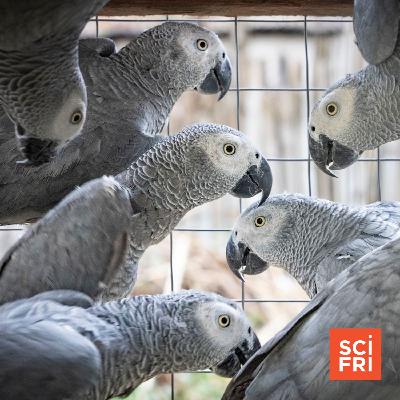

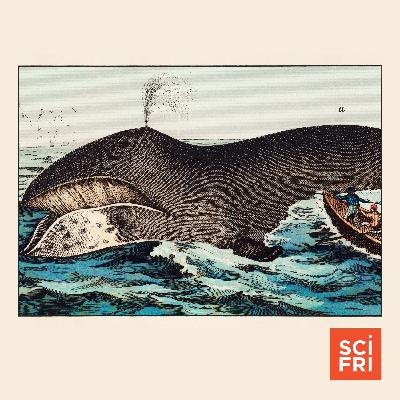
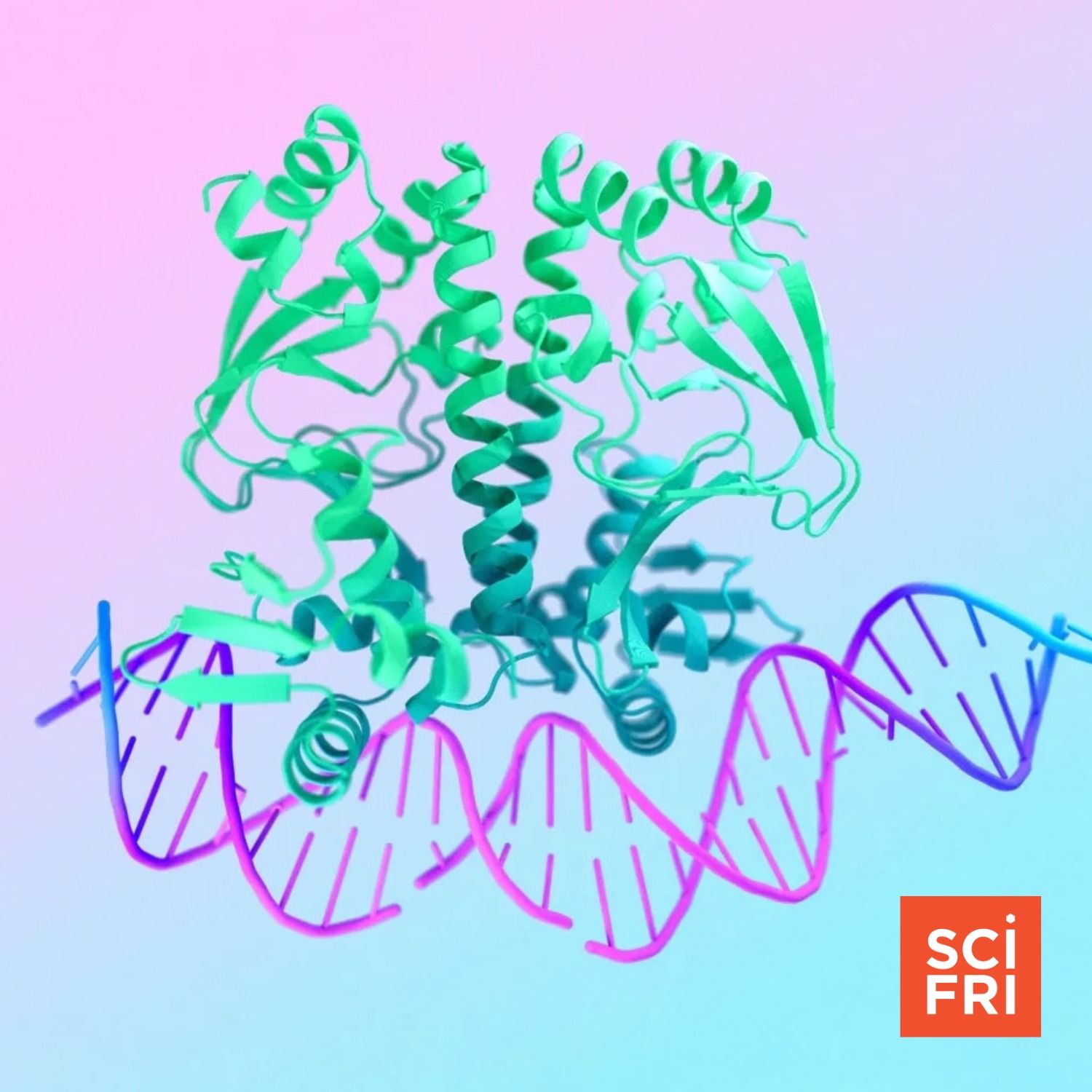
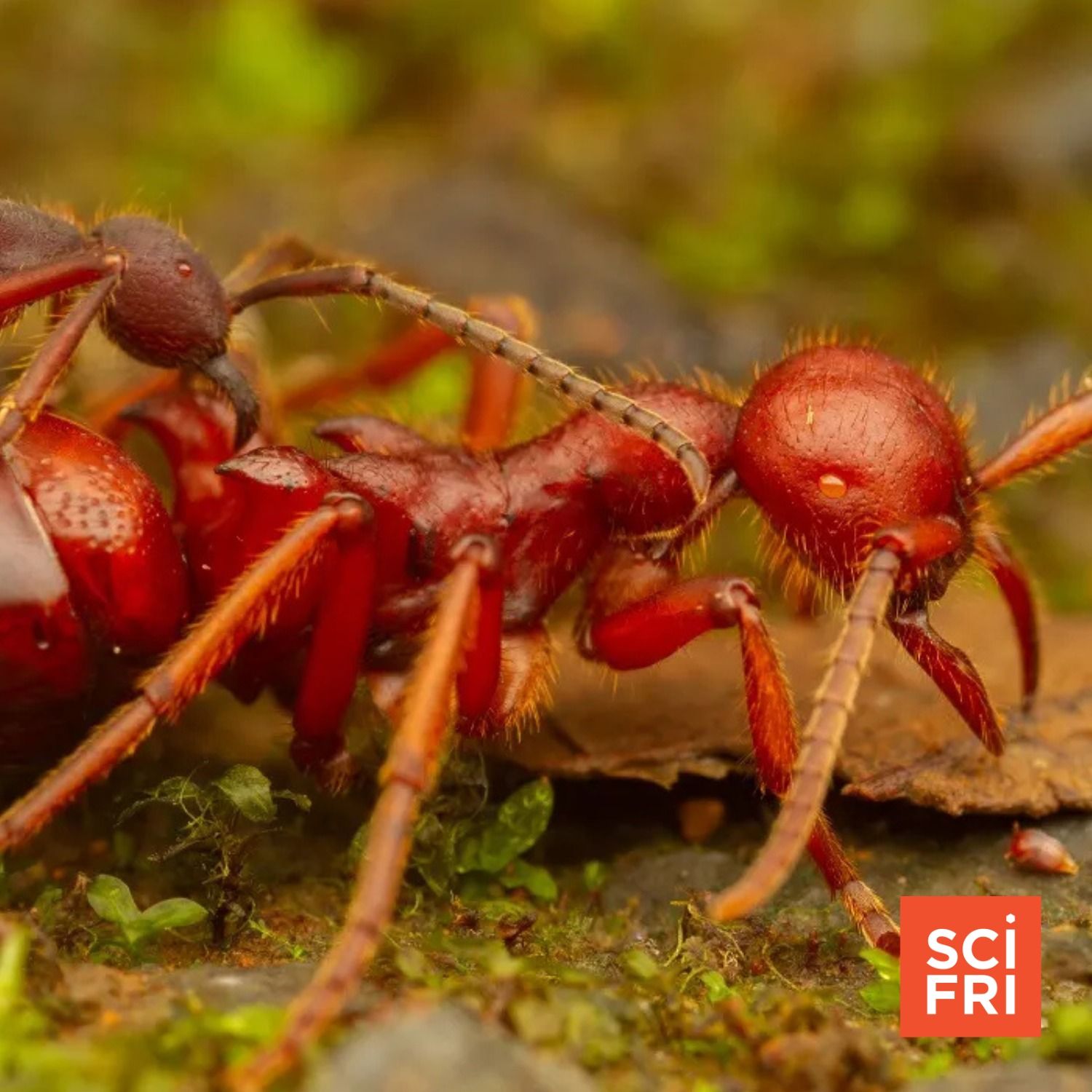

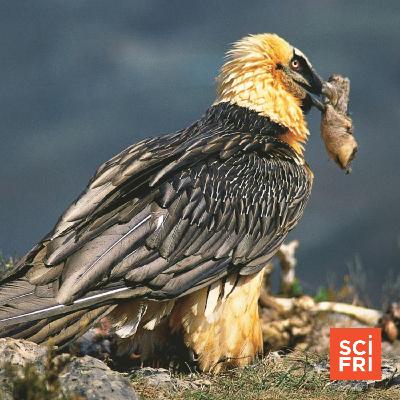

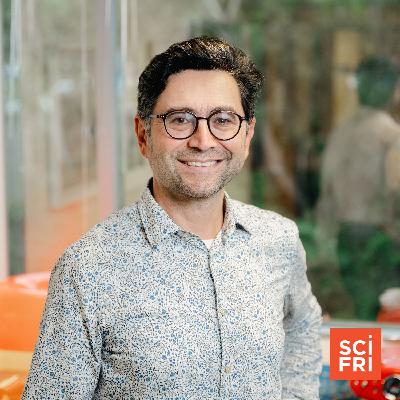

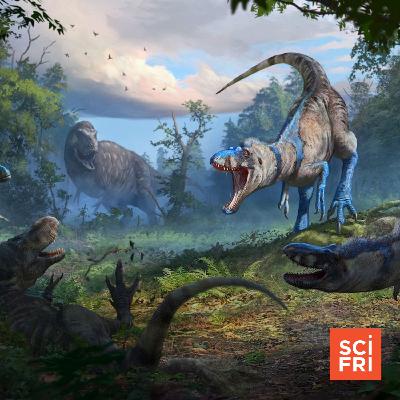

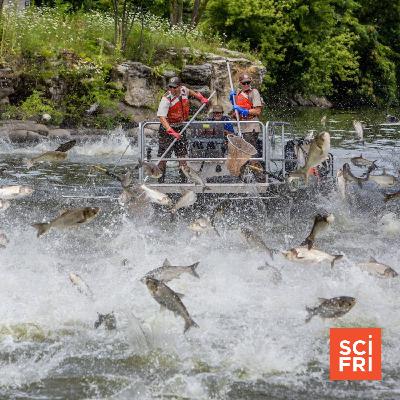
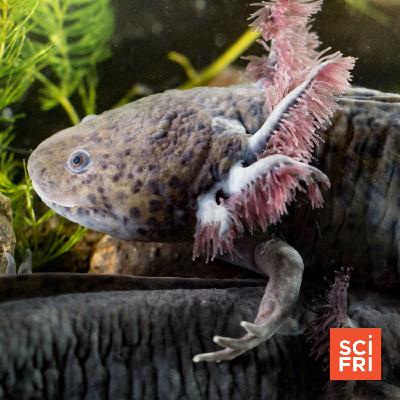









🔥🔥🥳🥳 That's amazing
volume zwQarsa
how can I have the transcription?
two people showing closed minds trying to negate another's observations in real life. sheesh, how many times did they say myth. not cool; hard pass listening to them further
why does Flatow drag these discussions down to a simplistic reduction that yields the same trite predetermined formula he wants for publication? why not find out the basis for new information and what makes it more reliable than previous means of measurement? does this recent finding just increase the range of possible values for the Hubble constant? or does it effectively supersede previous calculations?
some editing issues towards the end of this episode, unfortunate because it's such a good one!
I've often wondered if they could crispr a tree to grow faster and larger for lumber purposes. what's the genetic difference between giant bamboo and pine trees.
1:41 . . . Pi merits our irrational attention . . . Now that's "Woke Friday" for ya . . .
6:10 . . . The language of colonialism & imperialism has tainted this field of science ? . . . I used to regularly listen to SF back a decade or two ago before it became so woke. Then Ira started making global warming a part of every episode. It got so tiring. Science used to be interesting & educational. Now for the most part shows like SF are just preachy political. And they never self reflect on the decline.
Who is throwing shade on plants prehistoric or not ?
Not a single thing about how differently the movie would have been made today was discussed in this episode 😂
bro why you talk like that!
I think we shouldn't act like we're outside of nature. Humans are natural, albeit in very different ways sometimes. If we mess up and ecosystem we should be invested in repairing it as best were able. We protect endangered species all the time; it's odd that we'd treat these trees any differently.
The name is Türkiye, not Turkey. They changed their name almost 3 years ago.
between this guy's microphone and his accent I didn't get half of what he said especially at the critical moments.
This is said here by this politician is almost fake news!
Biochar can be used in the making of green concrete, too
this podcast encouraged me to learn other languages
is there any place which i can acsess to text of this interview?
Hit up Mind Pump podcast, they'll set you straight with personal experience not just studies, and they go over many studies.